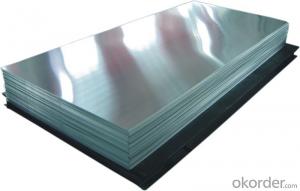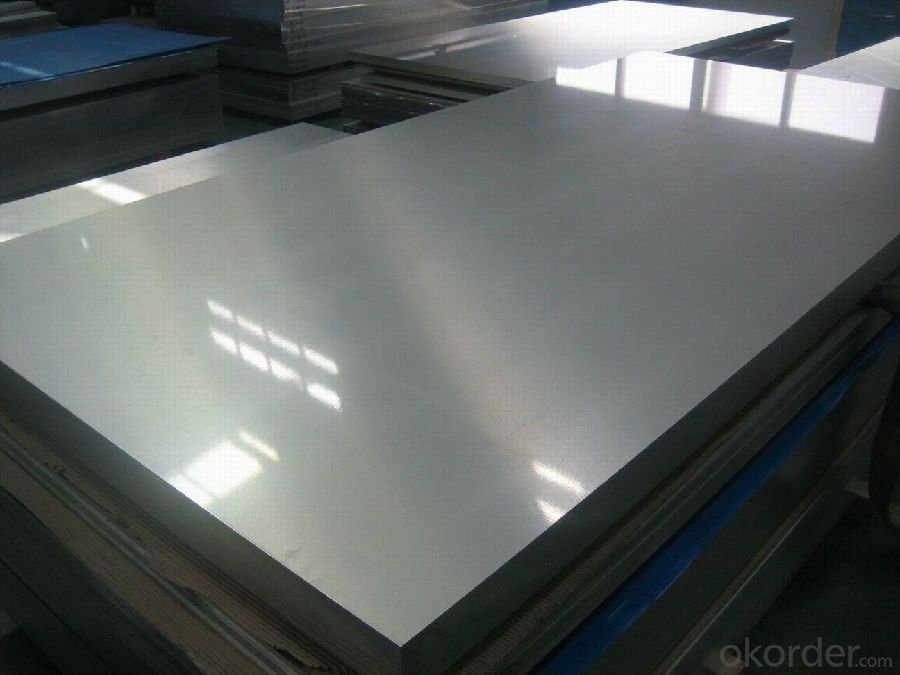Laminated Raw Aluminum Coil From China 3003 H14
- Loading Port:
- Shanghai
- Payment Terms:
- TT or LC
- Min Order Qty:
- 5 m.t.
- Supply Capability:
- 100000 m.t./month
OKorder Service Pledge
OKorder Financial Service
You Might Also Like
Laminated Raw Aluminum Coil (3003 H14)
Product Description:
Laminated Raw Aluminum Coil is designed for many fields such as electronics, instruments, lighting decoration, packing industry, and house decoration, curtain walls, honeycomb-core panel, sandwich panel, aluminum composite panel, aluminum composite pipe etc. Laminated Raw Aluminum Coil is hard and durable, even under the blazing sun. You can choose the right alloy for your habitation and we will do our best to meet your requests.
Product Features:
• Smooth surface
• High manufacturing accuracy
• High strength of extension and yield
• Well packaged
• No marks, no scratch, no excessive oil
Product Applications:
Product Specifications:
Alloy: | AA1050, 1060, 1070, 1100, 3003, 3004, 3005, 3105, 5052, 5083, 5754, 8011, 8006 |
Temper: | H14, H16, H18, H22, H24, H26, H32, O/F |
Thickness: | 0.2-100mm |
Width: | 30mm-1700mm |
Product Images:
Production of Hojas/Laminas de Aluminio natural 3003 H14
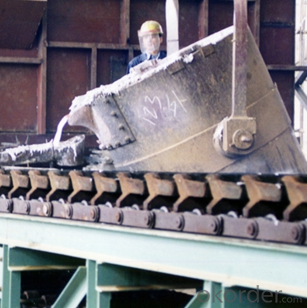
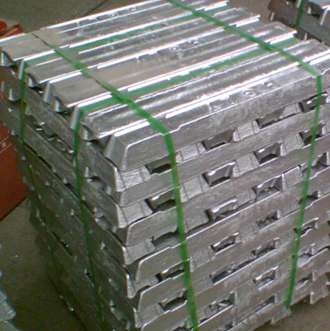
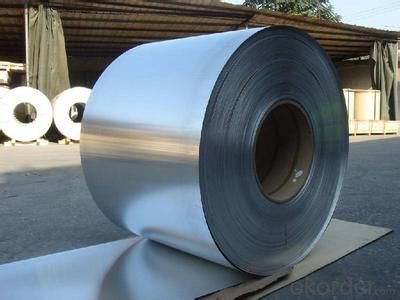
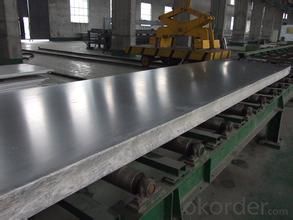
FAQ:
Q1: Why buy Materials & Equipment from OKorder.com?
A1: All products offered by OKorder.com are carefully selected from China's most reliable manufacturing enterprises. Through its ISO certifications, OKorder.com adheres to the highest standards and a commitment to supply chain safety and customer satisfaction.
Q2: How do we guarantee the quality of our products?
A2: We have established an advanced quality management system which conducts strict quality tests at every step, from raw materials to the final product. At the same time, we provide extensive follow-up service assurances as required.
Aluminium Metal - The Highly Conductive Property
Aluminium metal is the most abundant in the earth's crust but found only in combination, chiefly as an ore called bauxite. It also occurs in gemstones such as topaz, garnet, ruby and sapphire. It is found combined in over 270 different minerals. The metal is highly conductive and has great thermal properties and these properties are used for the various needs of the industries. Aluminium is silvery-white in colour.
The metal is used in various industries like building and construction, power transmission lines, photoengraving plates, cookware and other consumer goods, tubes for ointments and pastes. Global production of aluminium in the year 2005 was 31.9 million tonnes. This comes after iron consumption that was 837.5 million tonnes in the same year.
Pure aluminium has a low tensile strength, but if they are processed with proper heat and mechanics, they can be the strongest metal. Alloys formed with copper, zinc, magnesium, manganese and silicon are used in various industries.
Aluminium metal is extensively used in transportation industry. The use in aircraft and automobiles are well-known. A wide range of household items ranging from cooking utensils to baseball bats and watches are made of aluminium and its alloys. The consumer electronics are enclosed in the shells made of aluminium as they would not add to the weight of the equipment. Aluminium is used for making drinking cans, foil wrappings, bottle tops and foil containers that are extensively used in food and beverage industry. This is more effective as the metal is non-toxic and aromaless.
Powdered aluminium is used in paint and also forms an essential ingredient of the pyrotechnics like solid rocket fuels. The combination of properties light weight and great strength makes it useful in construction industry like window, doors, street lighting poles and sailing ship masts.
The highly conductive property of the metal makes it ideal to be used in electrical transmission lines for power distribution, heat sinks for electronic appliances such as transistors and CPU. About 1 kilogram of aluminium conducts almost twice as much electricity as 1 kilogram of copper. However, use of aluminium in household wiring has been found to be hazardous. Due to its ductile nature and corrosion resistance, the metal is used for electrical applications like TV aerials, satellite dishes and is the standard base for bulbs.
Aluminium is a recyclable material and many products can be made from the old form. Even the silver helium balloons that are commonly seen in birthday parties are covered with a thin, evaporated coating of aluminium metal over the tough plastic.
- Q:How do aluminum coils contribute to energy-efficient windows and doors?
- Aluminum coils play a significant role in making windows and doors energy-efficient. Firstly, aluminum is a highly conductive material, meaning it can efficiently transfer heat and cold. This property allows aluminum coils to act as a thermal barrier, preventing the transfer of heat from the outside to the inside and vice versa. By minimizing heat transfer, aluminum coils help to reduce the amount of energy needed to cool or heat a building, resulting in lower energy consumption and reduced utility bills. Additionally, aluminum coils are often used in the construction of window and door frames due to their lightweight and durable nature. This lightweight property makes it easier to install and operate windows and doors, while their durability ensures long-lasting performance. The use of aluminum coils also allows for the creation of sleek and narrow frame designs, maximizing the glass area and allowing more natural light to enter the building. This reduces the need for artificial lighting during the day, further contributing to energy savings. Moreover, aluminum is a highly recyclable material, and the use of aluminum coils promotes sustainability. By using recycled aluminum to manufacture these coils, energy-efficient windows and doors can be created with a lower carbon footprint. This reduces the environmental impact of the building industry and contributes to a more sustainable future. In conclusion, aluminum coils contribute to energy-efficient windows and doors through their thermal barrier properties, lightweight and durable nature, and recyclability. By minimizing heat transfer, facilitating efficient installation, and reducing the use of artificial lighting, aluminum coils play a key role in creating sustainable and energy-saving building solutions.
- Q:What is the lifespan of aluminum coils?
- The lifespan of aluminum coils can vary depending on various factors such as the quality of the aluminum, the manufacturing process, the environmental conditions they are exposed to, and the maintenance provided. However, on average, aluminum coils can last anywhere from 15 to 30 years. With proper care and regular maintenance, including cleaning and inspection, aluminum coils can potentially have an extended lifespan. It is important to note that regular maintenance and servicing by professionals can help identify any issues early on, allowing for timely repairs or replacements, ultimately prolonging the lifespan of aluminum coils.
- Q:What are the cost implications of using aluminum coils?
- The cost implications of utilizing aluminum coils can differ based on a variety of factors. To begin with, the expense of aluminum coils can be higher in comparison to other coil types, like copper coils. This is mainly because of the increased cost of raw materials and the energy-intensive manufacturing process involved in producing aluminum coils. Consequently, the initial purchase cost of aluminum coils may be higher when compared to other alternatives. Nevertheless, it is essential to consider the long-term cost implications. Aluminum coils are renowned for their durability and resistance to corrosion, which can result in an extended service life in contrast to other materials. This, in turn, can lead to reduced costs for maintenance and replacement over time. Additionally, aluminum is lightweight, making it easier to handle and transport, potentially resulting in reduced labor and transportation costs. Another aspect to consider is the energy efficiency of aluminum coils. Aluminum possesses excellent heat transfer properties, allowing for efficient heat exchange in various applications, such as HVAC systems or refrigeration units. This can translate to lower energy consumption and subsequently lower operating costs in the long run. Furthermore, aluminum is a highly recyclable material, which can contribute to cost savings and environmental benefits. Recycled aluminum can be utilized in the production of new coils, reducing the need for virgin materials and lowering overall costs. It is important to note that these cost implications may vary depending on the specific application and usage requirements. Factors such as the size of the system, installation complexity, and maintenance practices can also impact the overall cost-effectiveness of employing aluminum coils. In summary, while aluminum coils may have a higher initial purchase cost, their durability, resistance to corrosion, energy efficiency, and recyclability can result in long-term cost savings and environmental benefits.
- Q:Is it possible to customize the dimensions of aluminum coils?
- Indeed, the dimensions of aluminum coils can be tailored to suit individual preferences. Customers are able to request and obtain aluminum coils that have been manufactured and trimmed to specific measurements in accordance with their particular requirements and specifications. This customization procedure entails the meticulous cutting and molding of the aluminum coil in order to achieve the desired dimensions. This capability offers versatility across a range of industries and applications, where precise coil sizes are indispensable. By customizing the dimensions of aluminum coils, they become perfectly compatible with various production procedures, machinery, or end-use applications.
- Q:Why does the coated aluminum coil have thickness requirement for membrane?
- The purpose of coating is to protect the surface of aluminum coil and make it more aesthetic. The thickness of membrane is closely related to the keep years of products made by aluminum coil.
- Q:I go on a trip once a year with a group of lets say 10 people, we go for 7 nights and consume on average approx 120 cans of beer each (throughout the week). We have a fire burning the whole time in a hole that we dig approx 1ft deep, then we dispose of each can in the fire and let them melt down never thinking about them again. That's approx 1,200 cans that melt in the one fire hole.Will the aluminum have an affect on the soil? does anyone know what sort of damage this can cause? and for what distance / area around the fire might be affected?The theory amongst the group is that cans do not hurt anything so that's why they take cans instead of glass.Thanks
- Aluminum is very reactive in air and will form a layer of aluminum oxide around the outside of any piece. This oxide layer is very stable which is why aluminum doesn't corrode. Since your block of aluminum will be totally oxidized being in a fire, it's inert and just going to sit in the hole for the foreseeable future. The burning paint might not be healthy to breath but that's about the only hazard. Most common soil is a mixture of aluminum, carbon and silica compounds anyways so you aren't even adding anything particularly exotic. Alternatively, you could bring along a couple fifths of whiskey. It's lighter and has less packaging so it's the environmentally friendly way to get drunk.
- Q:What is the corrosion resistance of aluminum coils in saltwater environments?
- Saltwater environments do not pose a problem for aluminum coils as they possess outstanding resistance to corrosion. This is primarily due to the creation of a protective oxide layer on the aluminum surface, effectively acting as a shield against corrosion. By forming a barrier, this oxide layer prevents direct contact between the aluminum and saltwater, significantly reducing the likelihood of corrosion. Furthermore, aluminum itself has inherent resistance to saltwater corrosion as it is a relatively inert metal. Consequently, aluminum coils are widely utilized in various marine applications, including boat hulls, offshore structures, and saltwater cooling systems. Nevertheless, it is crucial to acknowledge that prolonged exposure to saltwater can still result in some degree of corrosion over time. To enhance the durability and performance of aluminum coils in saltwater environments, regular maintenance and suitable protective coatings are advised.
- Q:What are the different types of surface defect classifications for aluminum coils?
- The different types of surface defect classifications for aluminum coils include scratches, pits, dents, stains, oxidation, and coating defects.
- Q:What are the different coil uncoiling options for aluminum coils?
- There are several coil uncoiling options for aluminum coils, including manual uncoiling, mechanical uncoiling, and motorized uncoiling. Manual uncoiling involves manually unwinding the coil by hand, while mechanical uncoiling utilizes a mechanical device such as a uncoiler or decoiler to unwind the coil. Motorized uncoiling, on the other hand, involves using a motorized system to unwind and feed the coil. Each option has its own benefits and is chosen based on the specific requirements and volume of the aluminum coil being processed.
- Q:What are the different alloys used for aluminum coils?
- There are several different alloys used for aluminum coils, each with its own unique properties and applications. Some of the commonly used alloys include: 1. 1100 Alloy: This is a commercially pure aluminum alloy with excellent corrosion resistance and high thermal conductivity. It is often used in applications where high thermal or electrical conductivity is required, such as in heat exchangers or electrical conductors. 2. 3003 Alloy: This alloy is a general-purpose aluminum alloy that offers good resistance to atmospheric corrosion and moderate strength. It is commonly used in applications where moderate strength and formability are required, such as in packaging, roofing, or vehicle parts. 3. 5052 Alloy: This alloy is one of the highest strength non-heat-treatable aluminum alloys. It offers excellent corrosion resistance and good formability. It is often used in marine applications, as well as in automotive parts and appliances. 4. 6061 Alloy: This alloy is a heat-treatable aluminum alloy with excellent strength and corrosion resistance. It is often used in structural applications, such as in aircraft components, marine hardware, or bicycle frames. 5. 7075 Alloy: This alloy is a high-strength aluminum alloy with excellent fatigue strength. It is commonly used in aerospace and military applications, as well as in high-stress structural parts. These are just a few examples of the many alloys used for aluminum coils. The specific alloy chosen will depend on the desired properties and intended application of the coil.
1. Manufacturer Overview |
|
|---|---|
| Location | |
| Year Established | |
| Annual Output Value | |
| Main Markets | |
| Company Certifications | |
2. Manufacturer Certificates |
|
|---|---|
| a) Certification Name | |
| Range | |
| Reference | |
| Validity Period | |
3. Manufacturer Capability |
|
|---|---|
| a)Trade Capacity | |
| Nearest Port | |
| Export Percentage | |
| No.of Employees in Trade Department | |
| Language Spoken: | |
| b)Factory Information | |
| Factory Size: | |
| No. of Production Lines | |
| Contract Manufacturing | |
| Product Price Range | |
Send your message to us
Laminated Raw Aluminum Coil From China 3003 H14
- Loading Port:
- Shanghai
- Payment Terms:
- TT or LC
- Min Order Qty:
- 5 m.t.
- Supply Capability:
- 100000 m.t./month
OKorder Service Pledge
OKorder Financial Service
Similar products
New products
Hot products
Related keywords

